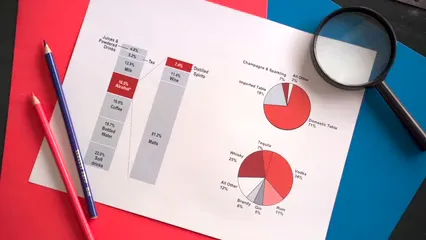
Why Do Home Evaluation Websites Differ So Much?
Introduction
Home evaluation websites have become essential tools for buyers and sellers. However, many homeowners face conflicting estimates. This inconsistency can be confusing, making it vital to understand the reasons behind these differences.
If you’re looking to dive deeper into real estate valuation, consider grabbing a copy of Zillow Home Valuation Book. This gem will help you decode the valuation maze and provide insights that can save you from the headaches of conflicting estimates.
Summary and Overview
The popularity of home evaluation websites has skyrocketed, providing convenience for homeowners and potential buyers. These platforms utilize Automated Valuation Models (AVMs) to generate property estimates quickly. However, various factors contribute to discrepancies in home value estimates across different sites.
For instance, each website may use different data sources and algorithms. Some rely heavily on public records, while others incorporate user-submitted information. Additionally, local market dynamics can significantly impact valuations. Though these tools are helpful for initial insights, they should not replace professional appraisals, which consider unique property characteristics and market conditions for greater accuracy.

Understanding why home evaluation websites differ is crucial for homeowners. why do home evaluation websites differ so much
Understanding these factors can help homeowners navigate the complexities of home evaluations. If you’re keen on becoming a pro in real estate investing, check out Real Estate Investing for Dummies. This book is like having a cheat sheet for navigating the real estate jungle.
How Home Value Websites Calculate Value
Home value websites rely on various algorithms to estimate property worth. These platforms typically use Automated Valuation Models (AVMs) that analyze large data sets. The data comes from public records, recent sales, and sometimes user-submitted information. For instance, Zillow combines its AVM with user inputs, while Realtor.com leans heavily on Multiple Listing Service (MLS) data.
The accuracy of these estimates hinges on specific factors. Recent sales in your neighborhood are crucial. Local market trends heavily influence the algorithms. If there’s a surge in demand or a sudden drop in inventory, these elements affect home valuations.

Zillow, for example, claims a median error rate of about 2.4% for on-market homes. Redfin is slightly better with 1.97%. These figures indicate how close their estimates are to actual sale prices. However, the performance can vary by region, sometimes leading to surprising discrepancies.
Each platform has its unique methodology. Redfin’s approach is more transparent, showing the comparable properties used in its calculations. Realtor.com provides multiple estimates from different data sources to give a broader perspective. For a more detailed look at home buying, consider picking up Home Buying Kit For Dummies. This guide will equip you with the knowledge to navigate the buying process like a pro.
Factors Influencing Home Value Discrepancies
Have you ever noticed how home evaluation websites often provide wildly different estimates for the same property? This can be puzzling. Several factors contribute to these discrepancies in home values across platforms.
First, local market conditions play a significant role. Economic influences, such as supply and demand, can shift rapidly. For instance, if a neighborhood is experiencing a surge in new businesses, home values may rise quickly. Conversely, if a local factory shuts down, values could plummet. These dynamic market conditions can lead to different valuation results on various websites.
Next, the quality and recency of data used for calculations can vary significantly. Some websites might update their data more frequently than others, which can lead to outdated estimates. If a property has recently sold or undergone renovations, one platform may reflect these changes while another does not. This can create stark contrasts in valuations.

Property features and conditions also matter. Two similar homes could have vastly different values based solely on renovations or upkeep. For example, a home with a newly renovated kitchen may command a higher price than an identical home with outdated appliances. Home evaluation websites may weigh these features differently, leading to varying estimates. To help you with your renovations, I highly recommend a Home Renovation Toolkit. Because who doesn’t love a good DIY project?
Statistics show just how pronounced these differences can be. In one notable case, two nearly identical homes in the same neighborhood had estimates that varied by over $50,000 across different platforms. Such discrepancies highlight the importance of understanding the factors contributing to these valuations.
As a homeowner, it’s crucial to consider recent sales data and local market trends. Doing so can help you make sense of these evaluations and better navigate your real estate decisions. Always remember, while online estimates can provide a starting point, they should be complemented with thorough research and professional insights.
Comparison of Major Home Evaluation Websites
When it comes to home evaluations, several popular websites take the lead: Zillow, Redfin, Realtor.com, and others. Each platform has its own unique approach, resulting in varying estimates for the same property.
Zillow is known for its “Zestimate,” which combines public data with user-submitted information. It claims a median error rate of about 2.4% for homes on the market. This means that 77% of its estimates fall within 5% of the actual sale price. However, accuracy can vary by location, leading to big discrepancies in certain areas.
Redfin offers its “Redfin Estimate,” which has a slightly better median error rate of 1.97%. Redfin is transparent about the comparable properties used in its calculations, allowing users to see how estimates are derived. This openness enhances user trust and understanding. If you want to get a comprehensive grasp of real estate, consider the The Millionaire Real Estate Investor. This book is packed with insights from those who have made it big in the real estate game.

Realtor.com takes a different approach. It relies heavily on Multiple Listing Service (MLS) data, but it does not always provide clear methods for its valuations. This lack of transparency can leave users questioning how estimates are reached.
Error rates are just one area of comparison. User experience also plays a significant role. Zillow often garners mixed reviews due to its complex interface and frequent updates. Redfin, on the other hand, receives praise for its user-friendly design and clarity.
Unique property features and local market conditions further complicate estimates. Each website may interpret these factors differently. For instance, Zillow might not account for recent renovations or specific neighborhood trends as accurately as Redfin.
Statistics show that discrepancies can be vast. Two similar homes in the same neighborhood might have estimates differing by tens of thousands of dollars across different platforms. This variability highlights the need for homeowners to check multiple sources when assessing their home’s value.
In conclusion, while these platforms provide valuable starting points, it’s crucial to cross-reference estimates. For the most accurate home valuation, consider checking Zillow, Redfin, and Realtor.com to get a fuller picture of your property’s worth. And if you want to take your home to the next level, a The Complete Guide to Home Buying can help you make informed decisions.
The Impact of Local Market Variability
Local market conditions have a profound effect on home valuations. Neighborhood trends and recent sales can lead to significant differences in estimates. For example, a home in a rapidly appreciating area may see its value rise sharply, while a similar property in a stagnant neighborhood could decline.
Understanding neighborhood dynamics is essential. Areas with high demand often experience increased valuations, especially if there are new businesses or schools nearby. Conversely, if a local factory closes, home values can plummet.

Statistics reveal how diverse markets can be. In urban areas, for instance, homes might sell for an average of $500,000, while just a few miles away, similar homes could average $300,000. This stark contrast emphasizes the importance of local insights when evaluating property value.
Using local resources can provide more accurate home valuations. Real estate professionals often have access to the latest performance metrics and can offer insights that algorithms overlook. They consider factors like community developments, school ratings, and even the emotional appeal of a neighborhood. If you’re looking to spruce up your home, a Home Staging Guide can be your secret weapon in making a great first impression.
In summary, remember that local trends significantly influence home valuations. Utilize local resources and seek community insights for the most accurate assessments of your property’s worth.
Conclusion
To wrap things up, home evaluation websites can provide varying estimates due to differences in data sources and methodologies. We’ve discussed how these platforms, like Zillow and Redfin, utilize algorithms that may overlook unique property characteristics. It’s crucial to combine online estimates, insights from local markets, and professional evaluations for a more accurate home valuation. Always approach online estimates with caution and awareness of their limitations. By staying informed, you can make better decisions in your real estate journey. And don’t forget, an awesome Home Cleaning Supplies Kit can make your home sparkle and shine, making it more appealing to potential buyers!
FAQs
Why do home evaluation websites provide different estimates?
Home evaluation websites differ because they use various data sources and methodologies. Some rely heavily on public records, while others integrate user-submitted data. Each platform interprets local market conditions differently, leading to diverse estimates.
Are online home valuations reliable?
While online valuations can offer a general idea, they often lack accuracy. They may not account for unique features, recent renovations, or specific local market dynamics. Relying solely on these estimates can be misleading.
What factors can affect the accuracy of online home value estimates?
Several factors impact accuracy, including unique property conditions, local market trends, and the quality of data used. Recent sales data and property features also play crucial roles in determining home values.
How can I get a more accurate home valuation?
For a more precise valuation, consider hiring a real estate agent for a comparative market analysis. Agents can provide insights into local market trends and unique property features, leading to a better understanding of your home’s worth.
What is an Automated Valuation Model (AVM)?
AVMs are algorithms that estimate property values based on various data sources, including public records and recent sales. They provide quick estimates but may overlook specific property attributes that affect value.
Should I trust my home’s estimated value from Zillow?
While Zillow’s estimates can be useful, it’s essential to consider multiple sources and professional opinions. They can provide a broader perspective on your home’s value, helping you make informed decisions.
How often are online home value estimates updated?
Update frequency varies by platform. Some websites refresh their data regularly, while others may not. This can significantly impact the accuracy of the estimates, especially in rapidly changing markets.
Please let us know what you think about our content by leaving a comment down below!
Thank you for reading till here 🙂
All images from Pexels




